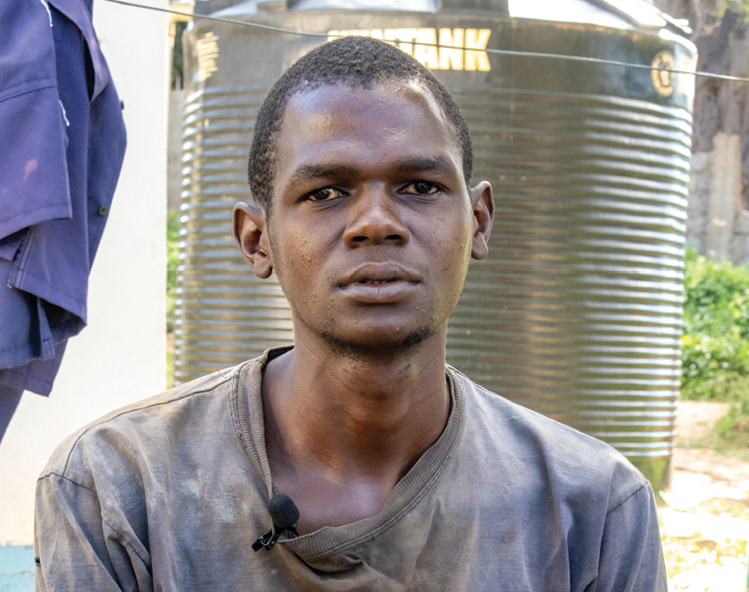Samuel Mwendo spent most of his young adult life on the streets of Eastleigh, Nairobi. He was 24, jobless and survived by collecting and selling scrap metal with a group of friends. They lived rough, shared whatever little they had and got through each day as best as they could.
When Samuel first fell sick, he thought it was malaria. He had chest pain, coughed often, felt weak, and would wake up soaked in sweat. Still, he kept going—buying painkillers from chemists and hoping it would pass. “I’d feel drowsy all day. I couldn’t stand for long or even eat. I’d cough up blood and barely sleep at night,” Samuel recalled.
One night, his condition worsened. He could hardly breathe or talk. “That night, I knew I needed help,” he said. His friends, worried, encouraged him to return to Mwingi, where he had grown up. At Mwingi Level 5 Hospital, doctors tested and diagnosed him with TB.
He was started on treatment immediately. But Samuel had no home, no food, and no family support. “I didn’t even have fare to get to the hospital daily,” he said. That’s when he was linked to a Community Health Promoter, Ursula Kimanzi.
Ursula began checking on him every day. “He showed me where he stayed, just next to a plot,” she shared. “We agreed that he’d take his medicine at 4 p.m. every day. Sometimes I’d find him asleep without food, so I’d buy him chapatis and fruit.”
“I thank Madam Kimanzi. She always asked how I was doing. She brought me food and reminded me to take my medicine,” Samuel said.
Slowly, his health improved. The coughing eased, he regained strength, and he started eating again. “I’m grateful. I wouldn’t want to go back to sleeping cold on the streets again,” he said.
Samuel’s recovery made him think deeply about others in similar situations. “At the shelter, we used to ask each other if someone else was also coughing,” he shared. Now, with first-hand experience, he tells others, “If you’re sick, go to the hospital. Don’t wait. TB is treatable.”
His case changed how health workers in Mwingi approached TB care among homeless people. Winfred Ngami, the Sub-County TB Coordinator, said, “When we engaged CHPs like Ursula, we started seeing results. People like Samuel finally complete treatment. Before that, many would just disappear.”
Anne Ngunti, a clinician at the chest clinic, agreed. “He used to come back with medicine he hadn’t taken. But when the CHP got involved, he adhered to full treatment. Seeing him cured meant one less person spreading TB in the community.”
But it hasn’t been easy. Ursula often puts herself at risk. “Sometimes I visit their bases and I’m the only woman there. I carry food and medicine. I’m always with a boda rider for safety,” she said. Still, she keeps going. “I do it because I’ve seen it work.”
Even now, Samuel still lives on the margins. He collects scrap metal for daily survival. But he’s no longer silent. “When I see someone coughing like I did, I tell them to get tested. When I meet my peers dealing with health complications,I urge them to visit a health facility. I know how it feels to be that sick. I tell them, TB can be treated, but you must take all your medicine.”
Samuel may not have much, but his voice now carries weight among his peers. His journey has helped others see that getting help is possible—even for those without a roof or a warm bed.
As he puts it, “I want my friends in the streets to know: TB has treatment. Don’t be afraid. Go get checked.”

